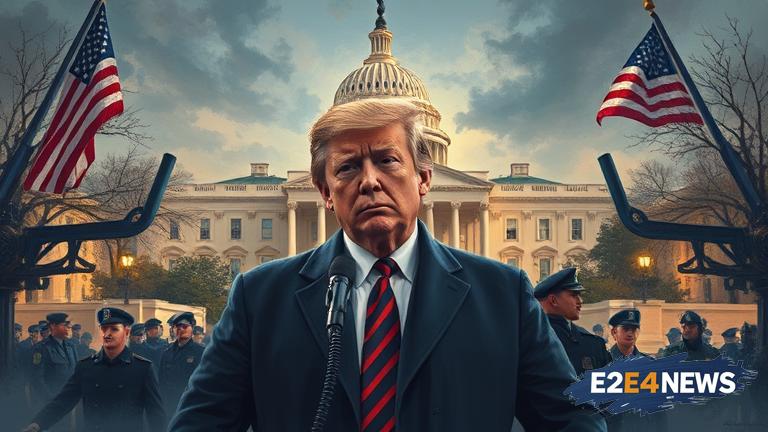President Trump has announced a series of executive orders aimed at cracking down on crime in Washington D.C., a move that has sparked intense debate among lawmakers, community leaders, and law enforcement officials. The orders, which include the deployment of the National Guard and Park Police, have been met with criticism from some who argue that it constitutes a federal takeover of the city’s law enforcement. DC Mayor Muriel Bowser has expressed concerns about the potential impact on community relations and the city’s autonomy. The move comes as DC has experienced a surge in violent crime, with homicides and shootings on the rise. Trump has argued that the city’s cash bail system is too lenient and has allowed violent offenders to be released back onto the streets. However, critics argue that the system is not the root cause of the problem and that the federal government should focus on addressing the underlying social and economic issues that contribute to crime. The House Oversight Committee has launched an investigation into allegations of police crime data manipulation, which has further fueled concerns about the city’s law enforcement practices. A whistleblower has come forward, alleging that police officials have been pressured to manipulate crime statistics to make the city appear safer. Community leaders have expressed concerns about the potential impact of the federal intervention on relations between law enforcement and the community. Some have argued that the move will only serve to further erode trust and exacerbate the problem. The DC Police Union has welcomed the federal support, but others have argued that it will only serve to militarize the police force and create more problems. The National Guard deployment has been met with criticism from some who argue that it will only serve to intimidate and harass community members. The Park Police have also been criticized for their handling of protests and demonstrations in the city. The federal takeover has sparked concerns about the city’s autonomy and the potential for federal overreach. Lawmakers have argued that the city should be allowed to handle its own law enforcement and that the federal government should focus on providing support and resources rather than taking control. The community has expressed concerns about the potential impact on civil liberties and the potential for abuse of power. The DC City Council has passed a resolution opposing the federal takeover and calling for a more community-based approach to addressing crime. The federal intervention has also sparked concerns about the potential impact on the city’s budget and the potential for federal funding to be withheld. The city’s law enforcement officials have argued that they need more resources and support to effectively address the crime problem, but critics argue that the federal government should not be dictating how the city should be policed. The debate has sparked a wider conversation about the role of federal law enforcement in addressing crime in urban areas and the potential for federal overreach. The community has called for a more nuanced approach that takes into account the complex social and economic issues that contribute to crime. The federal government has argued that the intervention is necessary to protect public safety, but critics argue that it will only serve to further exacerbate the problem. The situation remains fluid, with lawmakers, community leaders, and law enforcement officials continuing to debate the best course of action. The city’s residents are watching with bated breath as the situation unfolds, hoping that a solution can be found that will effectively address the crime problem without compromising community relations or civil liberties.
